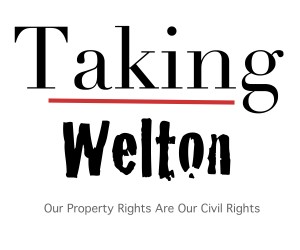If Trump wants a wall, eminent domain is the final frontier
“In the United States, a deed is defined as a binding legal document that grants you ownership over a house or a piece of land until you sell or pass that property on to your heirs. But at any time, the government can use its power of eminent domain to take that property for a project that it considers to be for the greater public good.
The problem is, not everyone agrees on what the public good is, especially when the public good involves government seizure of private property.
The project might be an unpopular oil pipeline, a highway — or a border wall.
Even when the project offers a substantial payout, some people just don’t want to leave their homes, and a fierce legal battle can ensue. The issue of eminent domain has gotten increased public attention recently because if the Trump administration wants to build a southern border wall, it will have to rely on its power of eminent domain to acquire much of the necessary land.
Eminent domain has long been recognized as a power belonging to any sovereign government. In the US Constitution, this power is implicit in the wording of the Fifth Amendment, which says, “nor shall private property be taken for public use, without just compensation.”
“‘Just compensation’ has long been interpreted as market value, which is inherently problematic,” explains Howard Mansfield, whose new book, “The Habit of Turning the World Upside Down,” takes readers to places where differing American ideas about property ownership have collided, with mixed and sometimes tragic results.
To many people, land is worth far more than its market value, Mansfield points out. It is a beloved place and a home. Claims of eminent domain “pit a quality, a feeling, a way of life against something that’s quantified,” he says. “The other problem with eminent domain is that the party taking the property ends up setting the price, even if you appeal, and that’s basically a broken market.””
read the entire article
Wernick, Adam. PRI 12 February 2019.
